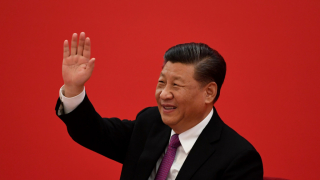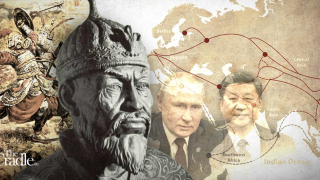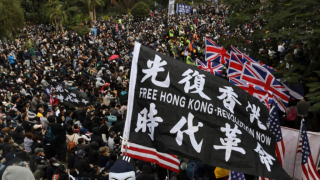See also
20.12.2024
For those sections of humanity yearning for the rise of a multipolar world, the arrival of US President-elect Donald Trump on the global stage has...
04.07.2017
Seven NATO members have announced that they will cooperate on the development of new maritime multi-mission aircraft.
Defense Ministers from France,...
29.11.2016
An improvised explosion device exploded blew up near the Presidential car, in which a detachment of bodyguard arrived in Marawi City in the southern...
20.03.2016
February saw Chinese home prices surge to their fastest rate in two years, leaving many observers fearing the market could be entering a bubble....
24.12.2024
The death of Russian General Igor Kirillov in Moscow sadly reminds us of that of Daria Dugina (whose murder by a cowardly hand we do not forget and...
03.12.2024
The Mojahedin-e Khalq (MEK), initially formed as a revolutionary group with the goal of combating the Pahlavi regime and establishing social justice...
27.11.2016
A car bomb exploded at the market in Somalia's capital Mogadishu. 11 people were killed and 16 were injured during the attack. But the number of...
05.12.2024
For at least a little while longer, I exist in a literal swamp. The area being graced with high temperatures, surrounded and permeated by water, and...
23.12.2016
Malta's Prime Minister Joseph Muscat has written in his page of the social network that the captured Libyan airliner was reforwarded to Malta.
There...
12.08.2022
The ultimate Silk Road city, set at an unrivaled Eurasian trade crossroads, is the ideal spot from which to examine where the New Silk Roads...
23.12.2016
Israeli Prime Minister Benjamin Netanyahu and Russian President Vladimir Putin have held telephone talks for the second time in three days.
They are...
01.07.2020
The “loss” of China in 1949 was perhaps the biggest blow to strike American hegemony in the post-World War II era, and it is felt increasingly to...













